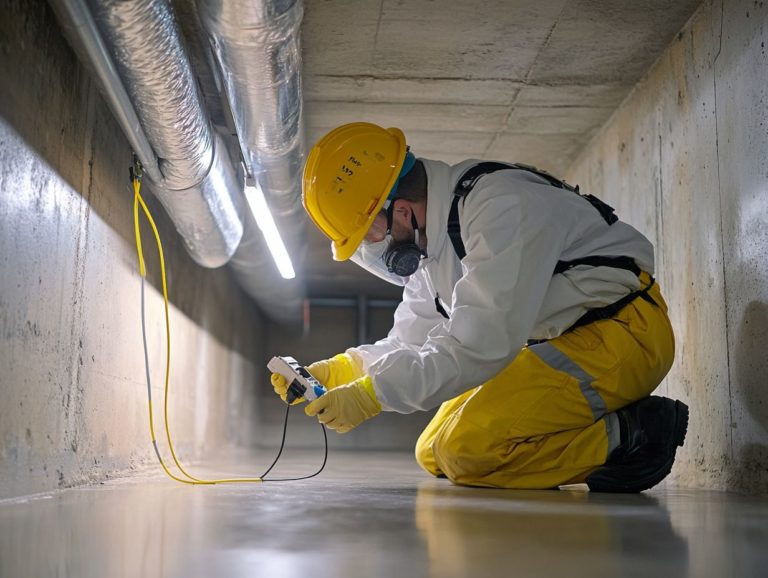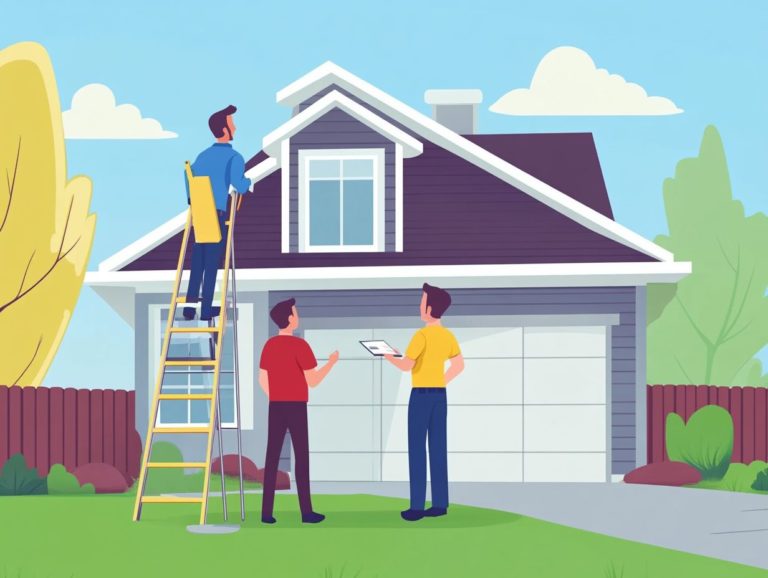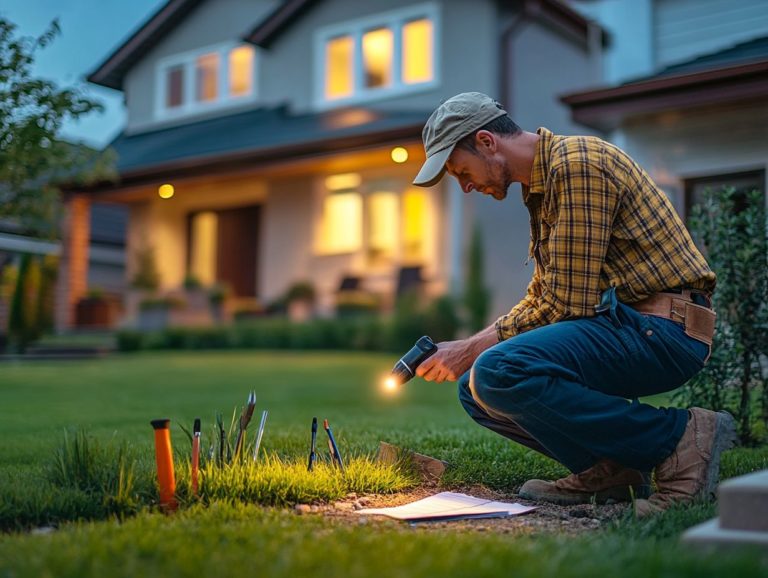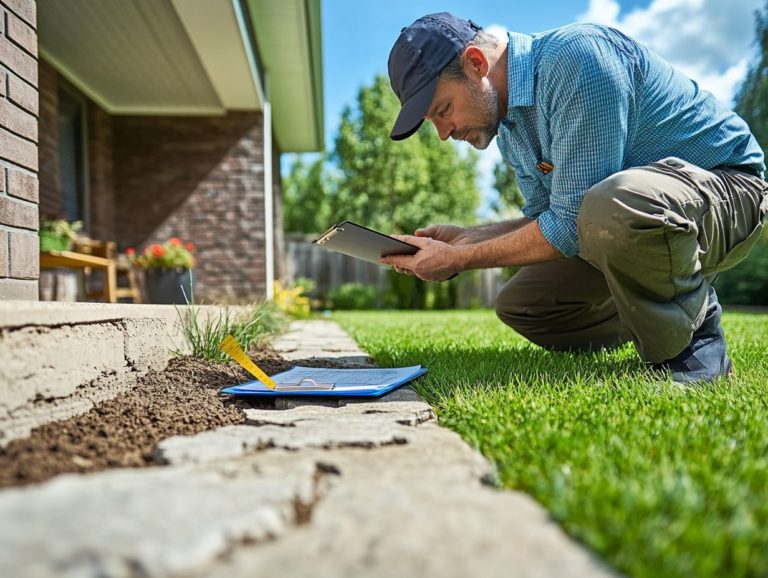The Importance of Home Inspections Before Closing
Buying a home is one of the most significant investments you ll ever make. Ensuring that your future abode is safe and sound is absolutely crucial.
Home inspections play a vital role in this process. They help you uncover potential issues before they evolve into costly headaches.
This article delves into what a home inspection entails, why it s essential, and when you should schedule one. You ll also discover common problems inspectors typically find and how to navigate repairs or negotiations with ease.
Continue reading to arm yourself with the knowledge you need to make informed decisions on your home-buying journey.
Contents
- Key Takeaways:
- Understanding Home Inspections
- What is a Home Inspection?
- Why Home Inspections are Important
- When to Schedule a Home Inspection
- Before or After Making an Offer?
- What to Expect During a Home Inspection
- Common Problems Found During Home Inspections
- How to Address Issues Found During a Home Inspection
- Negotiating Repairs or Price Reduction
- Frequently Asked Questions
- What is the importance of home inspections before closing?
- What types of issues can be uncovered during a home inspection?
- Do I need a home inspection if the house is new?
- Can I attend the home inspection?
- What if the home inspection reveals major problems?
- Are there any benefits of getting a home inspection even if there are no major issues?
Key Takeaways:
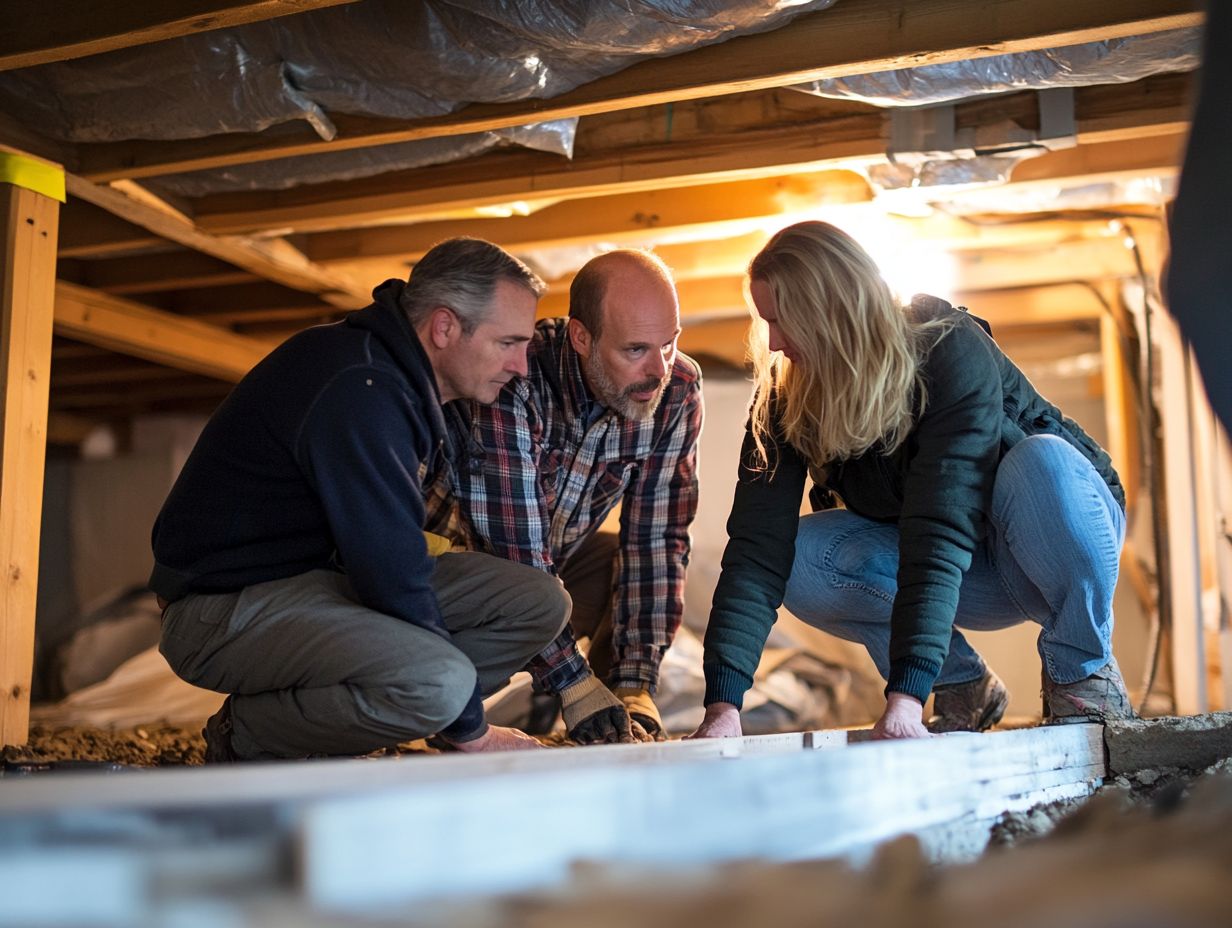
A home inspection is a crucial step in the home buying process. It provides buyers with a detailed assessment of the property’s condition and potential issues, highlighting the importance of thorough home inspections.
Home inspections can uncover costly and potentially dangerous problems, highlighting the importance of home inspections for buyers as an essential safeguard.
It is recommended to schedule a home inspection before making an offer to understand the importance of pre-purchase home inspections to avoid potential surprises and negotiate repairs or price adjustments.
Understanding Home Inspections
What is a Home Inspection?
A home inspection is an in-depth examination of a property carried out by a licensed inspector. It assesses the condition, pinpoints potential safety hazards, and evaluates structural integrity.
This process is essential for home buyers, particularly first-time buyers. It helps them make informed decisions about their investment.
Through meticulous visual inspections, inspectors generate a comprehensive home inspection report. This report outlines any plumbing issues, electrical system concerns, or deficiencies in heating and cooling systems that may be present.
This ensures that you fully understand the property before finalizing your purchase contract.
Definition and Purpose
A home inspection is a thorough evaluation of a property’s condition. It is designed to assess safety hazards and structural issues.
This comprehensive assessment helps buyers identify hidden concerns that could threaten both the safety and longevity of your home.
By meticulously examining various components like the foundation, roof, plumbing, and electrical systems the inspector ensures that your property adheres to relevant building codes. Home inspections are crucial for uncovering problems that might not be apparent during a casual walk-through, such as significant water damage or potential structural failure.
Recognizing these issues early can save you costly repairs later and provide peace of mind regarding your investment.
Why Home Inspections are Important
Home inspections hold significant importance for many reasons. They reveal potential issues that could result in costly repairs and affect the property’s market value, highlighting the importance of a thorough home inspection.
As a home buyer, recognizing these pitfalls strengthens your negotiating position with sellers. It also safeguards you against hidden problems that might surface post-purchase.
Potential Issues and Costs
During a home inspection, you might encounter various potential issues that could lead to significant repair costs. These particularly concern plumbing, electrical systems, or even structural integrity.
For instance, a seemingly minor plumbing leak might escalate into extensive water damage if not addressed promptly. This could result in hefty repair bills and potential safety hazards, such as mold growth.
Outdated electrical systems don t just pose fire risks; they may require immediate upgrades, which could further strain your budget.
Even foundational cracks could threaten the entire structure’s integrity, leading to astronomical repair expenses. It s essential to weigh these potential costs against your purchasing budget.
Thoroughly assessing these findings during the inspection can save you from future headaches and financial surprises.
When to Schedule a Home Inspection
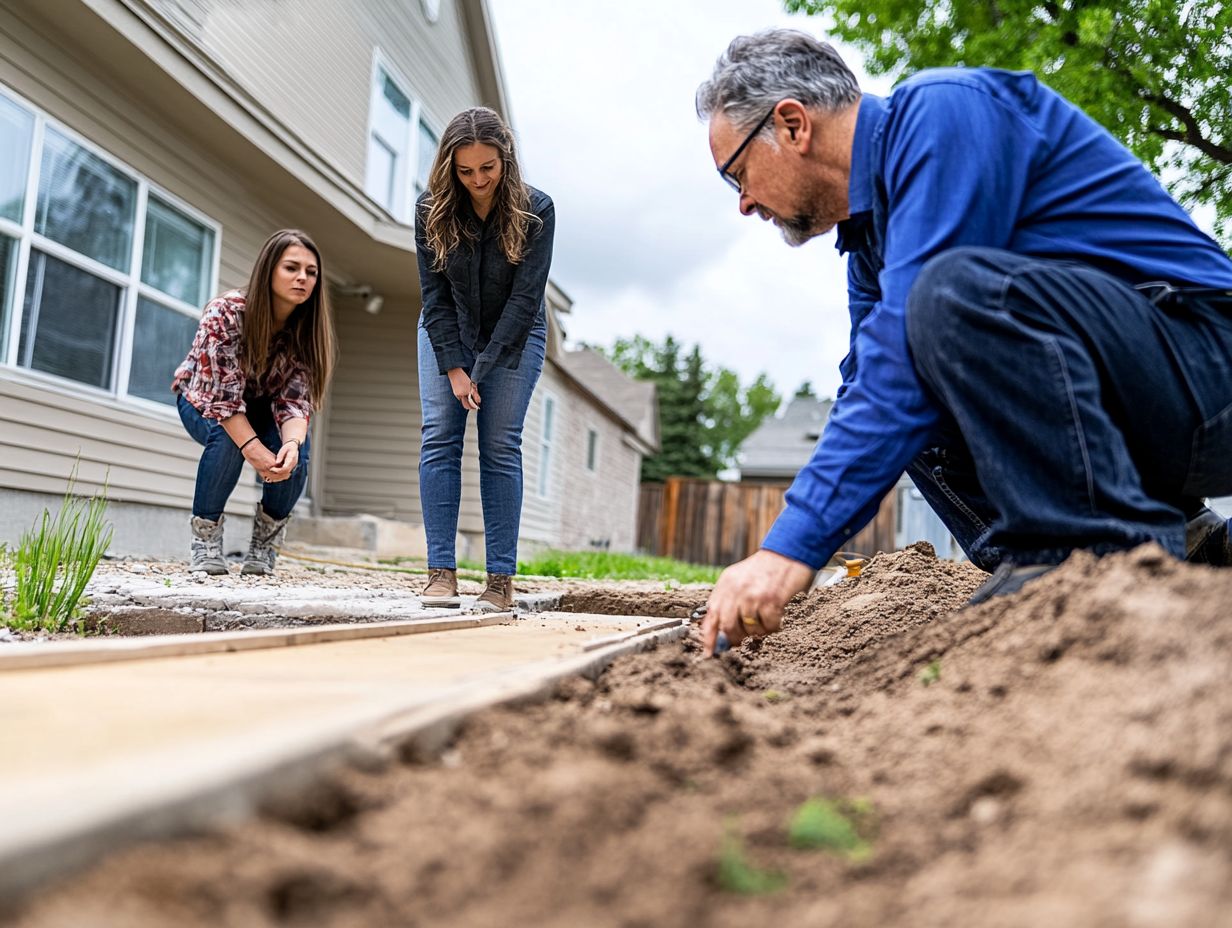
Determining the right moment to schedule a home inspection is essential in the home buying journey. Understanding the importance of home inspections in real estate helps you navigate the purchase contract and establish an inspection contingency that protects your interests.
You should work closely with a real estate agent to pinpoint the ideal timing for your inspections. This ensures transparency and safeguards you against any hidden issues that could arise.
Don’t let hidden problems ruin your dream home! Act fast spot potential issues before they cost you dearly!
After reading this article, consult with a real estate professional or schedule your home inspection today.
Before or After Making an Offer?
Deciding whether to do a home inspection before or after making an offer can significantly shape your negotiating position and overall experience in the home buying journey, highlighting the importance of a home inspection for buyers.
Assess the property’s condition early. This helps you find issues that may not be easily visible. This proactive approach gives you an advantage during negotiations, allowing you to request price reductions or repairs that can bolster your leverage.
On the flip side, if you choose to inspect after the offer, you may find your negotiating power diminished especially if you ve become very attached to the property, only to discover significant problems later on.
Putting inspection clauses in your contract is essential. This strategy lets you back out or renegotiate easily keeping your investment safe!
What to Expect During a Home Inspection
During a home inspection, you can anticipate a thorough evaluation of the property, conducted by a licensed inspector. This professional will perform visual inspections to assess critical systems, including electrical, plumbing, and heating, ventilation, and air conditioning (HVAC) systems.
The duration of the inspection may vary based on the size and complexity of the property, but you should be ready for an in-depth overview of the property’s condition.
Process and Timeline
The home inspection process unfolds in several key stages, starting with scheduling an appointment with reputable inspection companies and culminating in a detailed report delivered to you, the home buyer.
First and foremost, it’s essential for you to conduct thorough research and select an inspection company that boasts positive reviews and the necessary certifications. Typically, you can arrange an appointment within a week, giving the inspector ample time to evaluate the property.
The inspection itself usually lasts between two to four hours, depending on the size of the home.
Once the inspection is complete, most companies will provide you with a comprehensive report within 24 to 48 hours. Clear communication of the findings is crucial here; it ensures you fully grasp any potential issues and can make informed decisions moving forward. This clarity can greatly influence your overall experience and future negotiations.
Common Problems Found During Home Inspections
Home inspections frequently uncover a range of common issues, from structural concerns and safety hazards to plumbing problems and electrical system deficiencies.
Each of these factors can significantly influence the property’s value and ultimately affect your decision as a buyer.
Structural, Electrical, and Plumbing Issues
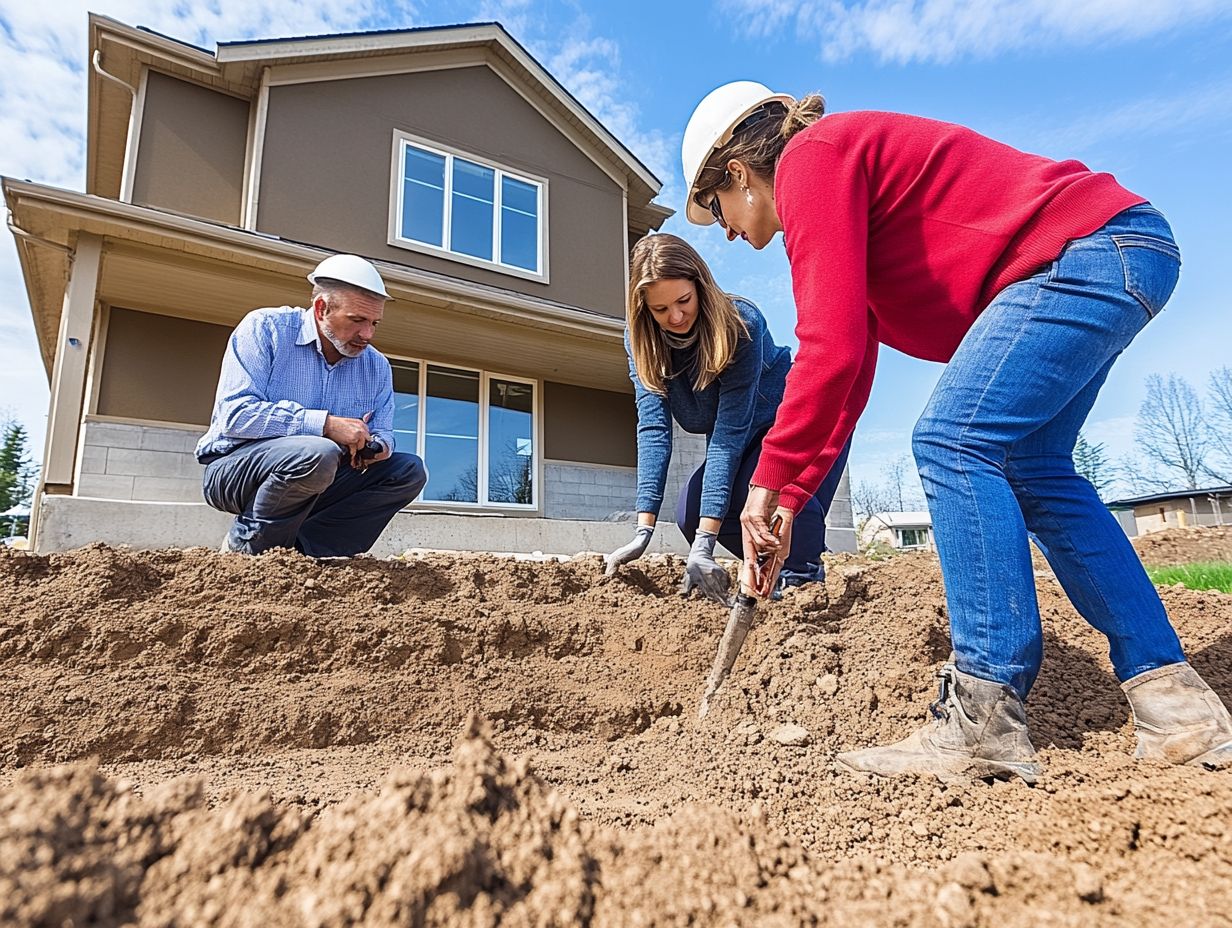
Common structural issues that emerge during home inspections often include foundation damage. You might encounter plumbing problems manifesting as leaks or faulty installations, while outdated wiring or safety hazards may surface in the electrical systems.
Addressing these challenges is essential. Ignoring structural issues like cracks in walls or uneven flooring can evolve into significant safety risks and lead to costly repairs later on.
If plumbing problems are left unresolved, you could face water damage, mold growth, and serious disruptions to your daily routines.
Similarly, outdated electrical systems not only pose a risk of fires but can also lead to inefficient energy consumption, spiking your monthly utility bills. Each of these concerns jeopardizes not only your safety but can also diminish your property’s overall value.
It s crucial to tackle them promptly and effectively to ensure a safe and thriving home environment.
How to Address Issues Found During a Home Inspection
Addressing issues uncovered during a home inspection is crucial for you as a home buyer.
This presents a valuable opportunity to negotiate necessary repairs or even a price reduction based on the estimated repair costs. Employing effective negotiation tactics can greatly impact the final terms of your purchase, making it essential to approach the findings with a strategic mindset.
Ready to start your home buying journey? Get a home inspection to safeguard your investment today!
Negotiating Repairs or Price Reduction
When negotiating repairs or seeking a price reduction after a home inspection, clearly communicate your findings to the seller. Emphasize essential repairs needed for the safety and functionality of the home.
Present repair estimates in a straightforward manner. Provide detailed documentation that outlines the necessary work and associated costs. This level of transparency supports your request and fosters an environment of trust.
Stay within a reasonable range during discussions to avoid alienating the seller. Maintaining a cooperative approach is crucial. Instead of viewing the negotiation as a confrontation, consider it a collaborative effort that can lead to more favorable outcomes for both parties.
This mindset encourages open dialogue, allowing each side to feel heard and appreciated.
Frequently Asked Questions
What is the importance of home inspections before closing?
Home inspections before closing are crucial because they help identify potential issues with the property that may affect its value or safety. Understanding the importance of home inspections before closing empowers buyers to make smart choices and negotiate repairs or price adjustments before finalizing the purchase.
What types of issues can be uncovered during a home inspection?
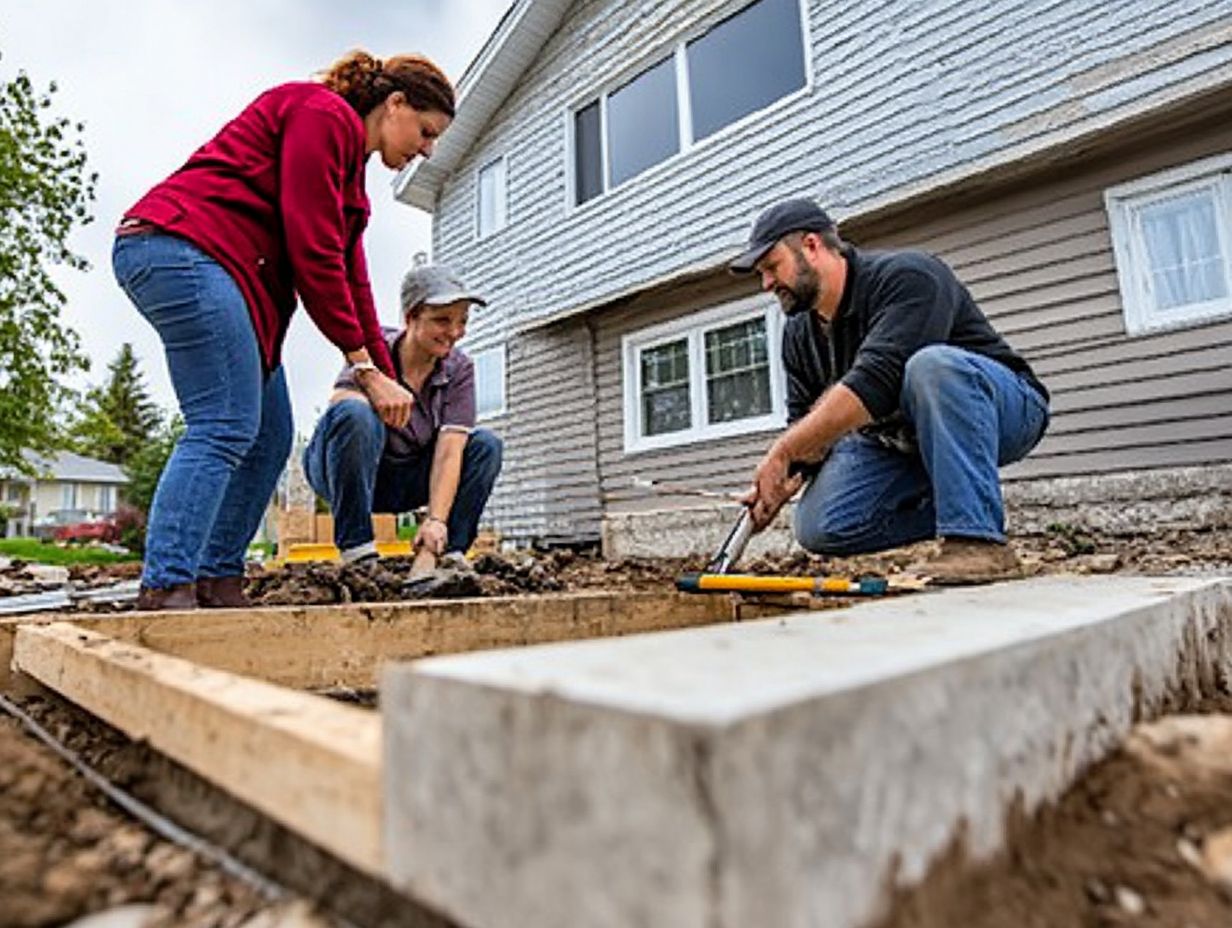
A home inspection can reveal a wide range of issues, including structural problems, electrical and plumbing issues, roof damage, pest infestations, and more. It can also identify safety hazards such as mold, radon, or asbestos.
Do I need a home inspection if the house is new?
Yes, even new homes can have defects or construction errors that may not be immediately apparent. A home inspection ensures that the property is built to code, meaning it meets building regulations that ensure safety.
Can I attend the home inspection?
It is highly recommended that buyers attend the home inspection. This allows you to ask questions, learn about the property’s condition, and gain a better understanding of potential issues.
What if the home inspection reveals major problems?
If the home inspection uncovers significant issues, buyers can negotiate with the seller to make repairs or provide a credit to cover the costs. If the seller is unwilling to address the problems, the buyer can back out of the purchase agreement.
Are there any benefits of getting a home inspection even if there are no major issues?
Yes, a home inspection provides buyers with peace of mind, knowing that the property is in good condition and has been thoroughly checked by a professional. It can also help identify minor issues that may need attention in the future, underscoring the importance of home inspections in real estate transactions, allowing buyers to budget and plan accordingly.

